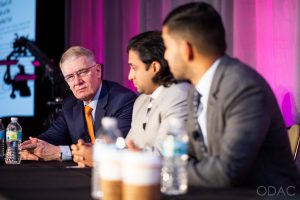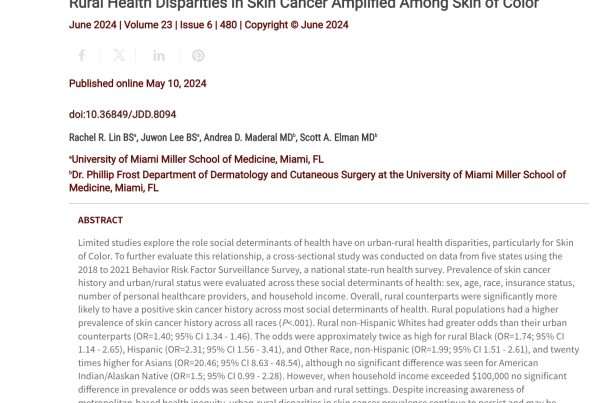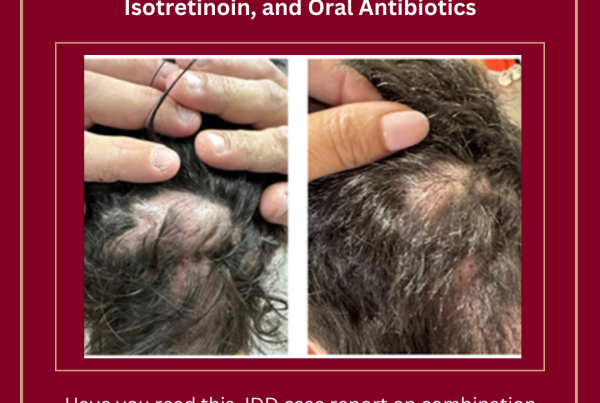National Skin Cancer Month

The discussion was led by Dr. Vishal Patel and Dr. Sailesh Konda, and was moderated by Dr. William Hanke.
Does This Skin Cancer Really Need Mohs? Highlights from the 17th Annual ODAC Conference
In recognition of National Skin Cancer Month, the Journal of Drugs in Dermatology and our industry partners, Next Steps, are taking a look back at an engaging panel discussion, “Does This Skin Cancer Really Need Mohs?,” from the 17th Annual ODAC Dermatology, Aesthetic and Surgical Conference in Orlando, Florida.
The case-based discussion examined the use of Mohs micrographic surgery (MMS) versus other treatment modalities for non-melanoma skin cancers, Merkel cell carcinoma, and lentigo maligna.
Case I: Highlights
by
The first case described a 41-year-old Fitzpatrick type II female with two superficial basal cells on her right central cheek (5×7 mm) and right chin (6×8 mm). Mohs Appropriate Use Criteria (AUC) score is 7 for both lesions, justifying MMS for both lesions. Pretty straightforward right?
Think again. Dr. Patel implored the use of topical immunotherapy with imiquimod for these lesions given a study by Williams et al. (1). This randomized clinical trial examined the interventions of either imiquimod 5% cream once daily (superficial basal cell carcinoma, 6 weeks; nodular basal cell carcinoma, 12 weeks) or excisional surgery (4-mm margin) on 3- and 5-year success rates. The 3-year success rate was defined as the clinical absence of initial failure or signs of recurrence at the 3-year dermatology review, and Five-year success was defined as 3-year success plus absence of recurrences identified through medical records. The 5-year success rates for imiquimod were 82.5% compared with 97.7% for surgery (relative risk of imiquimod success = 0.84, 95% confidence interval = 0.77-0.91, P < 0.001). These were comparable to year 3 success rates. Most imiquimod treatment failures occurred in year 1.
View More on Next Steps
This information was presented by Dr. Vishal Patel and Dr. Sailesh Konda at the 17th ODAC Dermatology, Aesthetic and Surgical Conference held January 17th-20st, 2020 in Orlando, FL.
Further case highlights can be reviewed by visiting Next Steps in Derm.
More on Mohs
ODAC Orlando Dermatology, Aesthetic & Surgical Conference
ODAC Dermatology, Aesthetic and Surgical Conference (ODAC) is a distinguished ACCME accredited dermatology conference designed to meet the needs of medical and aesthetic dermatology providers in the 21st century. Founded in 2003 by dermatology pioneer, Dr. Perry Robins, the ODAC Dermatology Conference provides nearly 700 dermatologists, residents, nurse practitioners and physician assistants with important annual updates and fresh practical pearls in the field of medical, cosmetic and surgical dermatology in a highly interactive format.
Reasons to Attend ODAC 2021
- Discuss the next generation of diagnostic approaches and evidence-based dermatology treatments
- Observe cutting-edge procedures and techniques with live demonstrations of novel products and emerging technologies
- Review clinical trial results and discuss case-studies in both large and small group settings
- Cultivate relationships with colleagues and leaders actively shaping the future of dermatology
- Earn CME – up to 31 AMA PRA Category 1 Credits™
You May Also Like









